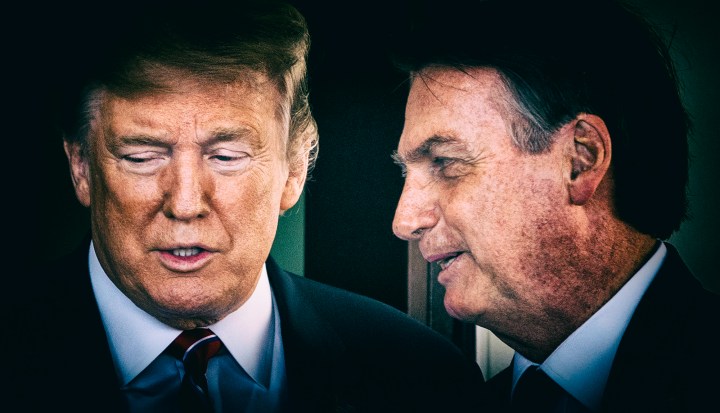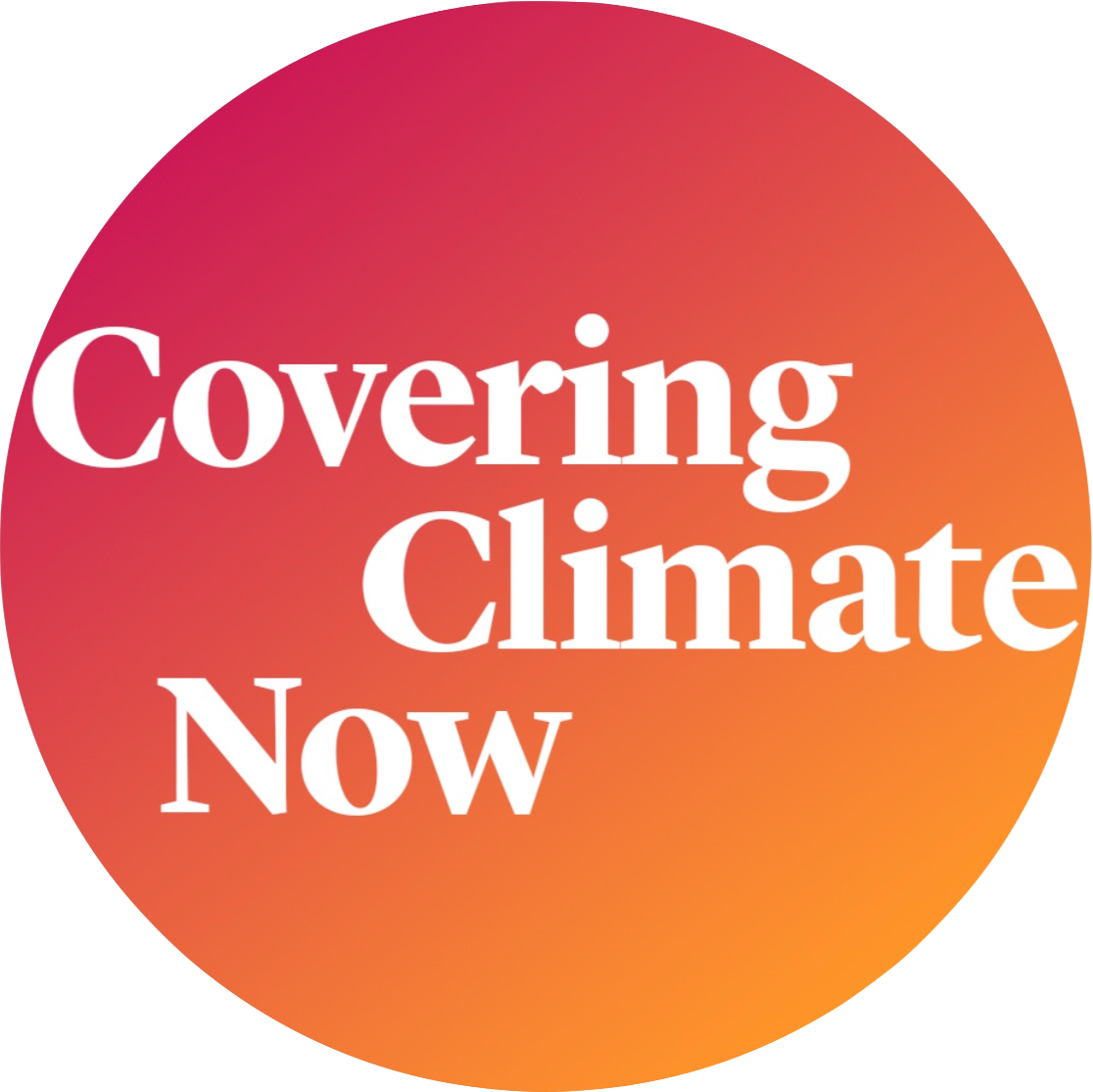Our Burning Planet: Analysis
Ecofeminism unleashed, or, How wrong the hawks are to view the vulnerable as meek

In this mentally disordered plot, the shimmering detail of unimaginably complex ecosystems that have unfurled over millennia are at the behest of an incontinent human wrecking ball with an orange tan, a fake blond combover and a helium-like vibrato that travels at 1,008 meters per second. And his band of merry dicktators. Not forever, though.
Visionary for its warning that gender equality could be just a flash between epochs of hypermasculinity, Margaret Atwood’s seminal 1985 novel, The Handmaid’s Tale, has been widely compared to rising dicktatorships such as US President Donald Trump’s administration.
Dicktatorship (noun): A country or society ruled by a despotic chauvinist and/or a strict government harshly opposed to liberal freedoms for women, such as reproductive choice and voting rights. In such a dispensation, a woman’s value is defined by her reproductive ability and hierarchical subordination to the male sex. Any other form of sexual freedom outside heteronormative values is also illegal and punishable by law.
Atwood’s latest novel, The Testaments, follows the award-winning television adaptation of Handmaid by reaching beyond the first book’s dystopian setting, this time 15 years into the future. In Handmaid, we meet the white supremacist theocracy of Gilead, which has overthrown the US government. With echoes of 17th-century Puritan New England, this regime has risen from ecological badlands shaped by an inferno of toxic waste and chemical use, resulting in widespread infertility. “Handmaids” are the captured sexual slaves or “two-legged wombs” of high-ranking men (“commanders”) who have everything — except fertile mating partners in their wives.
Both Handmaid and The Testaments are speculative conclusions of societies such as present-day US, Europe, Australia and New Zealand, where male sperm count may have declined by more than 50% between 1973 and 2011. This rings especially true where men in suits, as seen in the Trump administration, sign into law decisions about women’s bodies. At their heart, both novels show that, in societies where dicktatorial trends are already present, the chaos of existential disasters can quickly and completely erode the freedoms we’ve come to take for granted as sacrosanct. In states where sexism informs the bedrock of life, the most vulnerable — women, children and the elderly — are at the biggest risk of climate breakdown’s predicted pandemonium. Take increasingly dry and hot Afghanistan, where the Taliban still hold sway; anti-Happy Iran; or Saudi Arabia, keeper of the male guardianship system.
All aboard Trump’s global amusement park
Recently allowing a misogynistic mythomaniac like Trump to speak on behalf of Mother Earth at the G7 talks in Biarritz, produced a chilling parody of the quintessential Atwoodian commander.
Instead of speaking to a reporter’s question on what the world should do about the climate emergency, Trump seized the moment to unzip his latest plans for grabbing energy extraction by the pussy.
“Uuuh, I feel that the United States has tremendous wealth. The wealth is under its feet. I’ve made that wealth … come alive,” he puffed, as he held fast to the podium like a Gileadean super-freak bulldog, before launching, with slightly turned-out elbows, into a victory lap of untrumpable superlatives. “We’re the number-one energy producer in the world. Soon it will be by far … the number one … uh … it’s tremendous wealth …”
After informing the world that he was not going to lose this wealth to “windmills”, he treated us to his conspectus of environmental knowledge. “I want the cleanest water on Earth. I want the cleanest air on Earth. And that’s what we’re doing … and I’m an environmentalist!” Because. Non-sequitur.
When the press interrupted to restore focus, Trump aimed his right hand, like a floppy five-fingered penile armoury, in their general direction.
“At the same time … at the same time … at the same time — you weren’t called,” the 73-year-old president rebuked the reporter, wielding the planet’s most lampooned index finger in front of his right shoulder. Surely a new and insight-driven revelation would follow such a crescendo of repetition. “At the same time … it’s very important to me … VERY important to me … we have to maintain this incredible … this INCREDIBLE … place that we’ve all built.”
Short of beating his chest and claiming to be the world’s most knowledgeable intersectional ecofeminist, Trump has also variously positioned himself as the definitive polymath on everything — including campaign finance, the military, ISIS, courts, Twitter, banking, construction, money, trade, drones, “the system” and, of course, “the best words”. So, in his disordered universe, you can be the self-appointed Emissary of Clean Air and snub the entire contingent of leaders at the G7 climate talks.
Join thumb and index finger. Because, in Trump’s global amusement park, raping Mother Earth is A-okay — and anything is unadorned heartland gospel if you repeat it often enough.
You can aim your bullet spray of incendiary “environmentalism” at the gamut of good legislative action your predecessors have put in place. You can direct your administration to turn its crosshairs on more than 80 environmental rules so that your narrative of the world epitomises a post-apocalyptic industrial snuff film. In which, to turbo-charge oil and gas developments, you attempt to remove critical protections for rare and climate-vulnerable species; move to build a gargantuan, ill-advised wall along the southern border of the US that would not only restrict the movement of human migrants, but the wild species that crisscross the region’s ecological corridors; offer to buy Greenland for the plenty geopolitical perks the North Pole’s melting cap is likely to reveal; take your battering ram of phallic conquest to regulations that monitor and plug atmosphere-heating industrial leaks of the planet’s most powerful greenhouse gas, methane; rip the US out of international climate negotiations critical to the survival of the human species; and let your Yes-men and women loose on all organs of state — the captured Environmental Protection [Destruction] Agency among them — until the America you promised to make “great again” looks like your worst nightmare of just another “shithole” African country.
In this mentally disordered plot, the shimmering detail of unimaginably complex ecosystems that have unfurled over deep millennia are at the behest of an incontinent human wrecking ball with an orange tan, a fake blond combover and a helium-like vibrato that travels at 1,008 meters per second.
Boris’s johnson and other insults
All this would be a fraction more palatable if only a sneeze in the US didn’t give the rest of the world a cold. These days even — or you might say especially — school kids, millions of them across the planet, understand that the climate crisis doesn’t respect national boundaries.
But Trump is not alone in his Bondian stunts even as intergenerational activist movements are begging for the opposite: civilisation-wide deliverance from the growing abyss of nature’s collapse — let alone insidious intelligence risks that could only serve to strengthen the oil-fuelled interests of the shadow state. Think, for a second, about the intensification of totalitarian AI; and, in the era of WikiLeaks, so-called liberal media that may be little more than ventriloquist puppets for security spooks, according to an investigation by Daily Maverick’s Declassified UK chapter.
Across the pond, Trumpesque infantilities on women endured in UK Prime Minister Boris Johnson’s poor grasp of tautology during his first PMQs as head of government. “You great big girl’s blouse!” Johnson hollered at opposition leader Jeremy Corbyn as the latter grilled him over his antics to dissolve parliament.
If you’re going to insist on gendered insults, why not call Corbyn something more appropriate, like Boris’s johnson? Not to suggest that this would be a big insult. Johnson has built his career on political celebrity rather than substance.
Naturally, Planet Patriarchy seems to be on full display everywhere one dares to peek these days — the Brics bloc, which counts as its members some of the biggest among carbon offenders, not being least of this boys club.
From the Kremlin issues a seemingly endless, painful slew of publicity shots holding up its vertically challenged president’s flabby chest as the epitome of manly hunting prowess. These are arguably a bigger assault on the senses than the 2012 anti-Putin/church protest by feminist punk rockers Pussy Riot. For this jaunty performance, two members were sentenced to two years in remote penal colonies in Perm and Mordovian territories. This condemnation was trifling against Putin’s 2017 decriminalisation of domestic violence — as long as the offender is thoughtful enough not to break his partner or children’s bones, he gets to cough up a maximum fine of $530, spend 15 days of rent-free living in prison, or contribute to a spot of community service. Women in Russia have been allowed to vote since 1917, and the Soviet Constitution has viewed them as “equal” to men since 1936. Lucky girls.
As the Amazon burns, we see similar aggressions in Brazil President Jair Bolsonaro’s taunts of Michelle Bachelet, Chile’s first woman president from 2006-10, over her father’s fatal torture at the hands of the Pinochet regime, who sanctioned over two decades gruesome acts of femicide. Bachelet and her mother were also tortured by the regime. Elsewhere in Brics, we have Indian Prime Minister Narendra Modi and his attack dogs accused of clamping down on critics of Hindutva — the nationalist ideology that preserves Indian culture for Hindu values at the exclusion of some 195 million Muslims and other minority groups on the subcontinent. Ask one of Modi’s committed critics, the Indian freelance investigative journalist Rana Ayyub and author of Gujarat Files: The Anatomy of a Cover-Up, her self-published 2016 exposé. Ayyub spent several months in disguise to probe the 2002 Gujarat riots, drawing links between Modi’s tenure as Gujarat chief and violence in the state against Muslims. The price? A psychologically brutal backlash of viral online slut-shaming that featured Ayyub’s face in pornographic deep fakes; threatened her with gang rape and published her personal phone number and address on social media.
Sound familiar? These cyber-misogynistic drives against women journalists are not only standard fare in India — they’re regular, widely documented occupational hazards for women journalists working out of South Africa.
South African women on the march
However, the country’s ethos of sexually violent impunity — in which thousands of women and children were murdered and raped last year — was dealt a historical defeat this week when its Constitutional Court ruled that parents may no longer spank their children. In September, high-profile cases of femicide have also unleashed generation-defining waves of feminist fury across the country, simultaneously spawning the #AmINext and #IAmNotNext protest movements, amid clamorous cries to end gender-based violence. “Khwezi! Khwezi!” rang out in the heart of Sandton, Johannesburg — that shrine to African neoliberalism —directed at none other than ANC Women’s League President Bathabile Dlamini. Making their feelings clear, the demonstrators would not forget. An opportunistic women’s league who had defended former President Jacob Zuma during his 2005 rape trial against the late Fezekile Ntsukela “Khwezi/X” Kuzwayo, who suddenly died at her Durban home in 2016, had no place in their raw sorrow and anger.
The war on women may have little to do with real masculinity, although well-known Canadian “masculinity crisis” campaigner Jordan Peterson may disagree — his censure of ecofeminist Greta Thunberg mirrors that of his Twitter bromancer and fellow “sceptic” Bjorn Lomborg.
Instead, one might say it’s fuelled by cowardice hiding behind the strongman bravado of Trump and his contemporaries, feeding a siege mentality against women empowerment in every country in the world where feminine identity and nature are equally disembodied as pre-ordained possessions of the machismo ambush.
This, at the very least, is the kind of mentality that flies in the face of qualities most cultures would consider universally heroic — the stoutheartedness, gallantry, vision and honour that aren’t exclusively male traits, but that one would expect of an alpha male who doesn’t repeatedly and forcibly violate the irreplaceable web of life on which we all depend.
These are heteronormative, essentialist perspectives on what real manhood may entail, and heterosexual/LGBTQIA+ communities will have their own interpretations of the masculine ideal. But if good men and women were to leave nature’s reeling vestiges to the harlequin he-men of populism — and their Lady Macbeths — it would be like sleepwalking into a climate-heightened gender war that presages a greater toll on society’s most vulnerable than Gilead itself.
In December, respected Scottish barrister Polly Higgins, an inspiration to ecofeminists throughout the world, launched at the Hague what she called an “independent preliminary examination into climate crime”, which, she noted, made other forms of “ecocide” pale in comparison.
However, a few hours east along the main drag in Katowice, the world’s countries were busy arguing about the petty details of carbon credits at the UN climate talks. This, despite being told in October by 6,000 studies from 40 countries that the world had less than 12 years — basically, the equivalent of Macaulay Culkin’s age when he child-starred in Home Alone — to avoid a global climate catastrophe. If the crisis were the intruder loudly bumbling up the driveway, the world’s elected representatives couldn’t even agree on closing the front door.
“How do we ensure the responsibility to protect our very Earth against the worst excesses of climate breakdown?” asked Higgins, armoured in a black suit fitting for a boardroom war. By the time she died of aggressive cancer at age 50 about four months later, she had spent 15 years to have ecocide, an atrocity that does not play by border rules, recognised as an equivalent crime alongside the International Criminal Court’s existing big four: genocide, crimes against humanity, war crimes and crimes of aggression.
Her associates, such as Amnesty International’s Kumi Naidoo, have vowed to continue the fight of climate justice. If the campaign is successful “amid growing calls” to criminalise globally destructive environmental crimes, world leaders could be held personally accountable for endangering the most vulnerable members of society.
However, as vital as these calls are, they may be reactive answers to a much deeper fight, for which we can take inspiration from one of the anti-apartheid movement’s most influential forces, the Federation of South African Women. The organisation that led some 20,000 women on Pretoria’s Union Buildings in 1956 to protest apartheid’s pass laws, its achievements include writing into the 1955 Freedom Charter the principles of gender equality today enshrined by the South African Constitution’s Bill of Rights.
Similarly, new-wave ecofeminists such as “What would Greta do” Thunberg, the 16-year-old Swedish “school strike for climate” founder, and Bronx activist Alexandria Ocasio-Cortez, who last year on the back of her Green New Deal became the youngest woman elected to US Congress, demonstrate the power of feminist resistance in the fight against global climate apartheid.
On 20 September, Thunberg leads her youth climate strike in at least 150 countries.
In South Africa, youth strikers are planning organised mass protests in all South Africa’s major cities: Cape Town, Durban, Gauteng and East London.
“In South Africa and many African countries, women carry the majority of burden of providing for their families. Women grow the food, collect water and fuel for cooking — and yet, as droughts and erratic rainfall have depleted our natural freshwater sources, women are either travelling further to collect water or, in some cases, taking social grants just so that they can buy water,” Nicole Rodel, a strike organiser and communications officer for the African Climate Reality Project told Daily Maverick. Climate-related economic stresses are leading to increased domestic and gender-based violence, she said.
Ecofeminist movements such as the Waterberg Women’s Advocacy Organisation (WWAO) and WoMin, a non-profit alliance pitted against “destructive resource extraction”, are increasingly working towards climate justice for South African women. “The judiciary is failing us. We need to start from the bottom up for women to be part of decision-making,” WWAO’s Francina Nkosi said ahead of the strike.
“We have been encouraging greater participation and agency of womxn in decision-making processes through engagement with our provincial legislatures and holding the government to account; as well as fostering womxn leadership on the climate response in the legislature,” Noelle Garcin, of the environmental-governance group Action 24, told Daily Maverick by email. According to Garcin, the group is partnering with the Commission on Gender Equality to research the “gender-climate change nexus and inform recommendations on South Africa’s Climate Change Bill – the first draft of which failed to mention gender even once”.
Garcin worked with Limpopo climate justice organisations — the Waterberg Environmental Justice Forum, the Lephalale Community Justice Movement as well as WWAO — to review and comment on the Bill, currently in draft stages. Their comments included a call to “acknowledge the specific vulnerability of women to climate change impacts, and provide for the mainstreaming of gender sensitivity in South Africa’s climate change response”.
She urged South Africans to join the global climate strike — “and connect the dots on how the current socio-economic structures feed gender-based challenges … The climate strike is just one of the ways that we can make our voices heard, and South African citizens need to be actively participating in decision-making processes by engaging with our elected representatives on an ongoing basis”.
The upwelling of women’s voices in the climate crisis is something of a conspiracy of doves, at a time when young women are shattering clichés of being an inactive political underclass. This also calls to mind now similarly dead misnomers of the #FeesMustFall generation as once accidental bystanders to South Africa’s freedom struggle. How wrong the hawks are to view the vulnerable as meek. DM



















 Become an Insider
Become an Insider